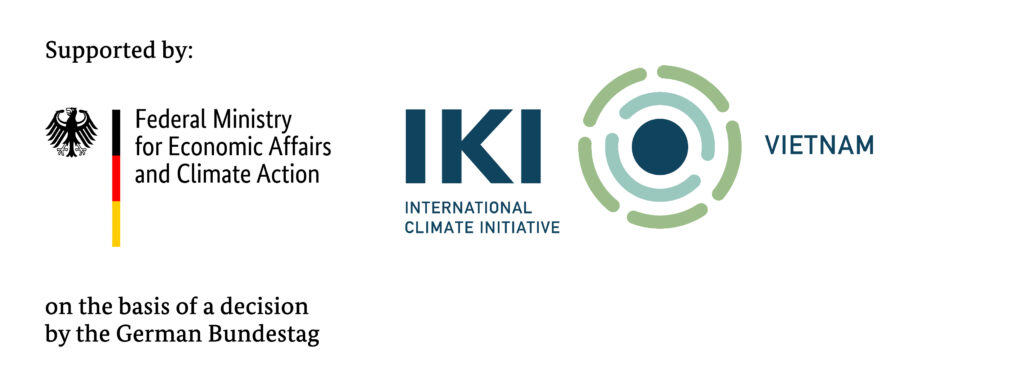Dong Hoi City, located in Central Vietnam, known as the heartland of economic and culture of Quang Binh Province, has witnessed several climate hazards such as storms, flood surges, and droughts in the past. Along with this, the rapid urbanization and population growth are causing high pressure on land which is increasingly needed for residential areas and infrastructure, along with the problem of insufficient wastewater management and repeated flooding of the city. In this context, the Ecosystem-based Adaptation (EbA) model has become a key measure to deal with increased temperature, storms and flood events and water scarcity, by reducing soil sealing, lowering the heat gain, and increasing ability to control storm water. However, there is still a huge gap in terms of understanding and knowledge on urban adaptation and its linkage with urban development plans in Dong Hoi.

Participants assessing climate threats to the local infrastructure in Quang Phu commune in a community-based workshop
With the aim of developing and strengthening the skills, processes, and resources that Dong Hoi City needs to tackle climate change impacts and other risks, in 2021, the VN-SIPA project developed a set of training materials on urban Ecosystem-based adaptation (EbA) and climate risk management. To further increase capacity and disseminate knowledge of these topics to stakeholders at different levels in Quang Binh province, the VN-SIPA project hosted three training workshops from May to August 2022. They were attended by about 100 leaders and technical staff working in urban EbA and climate risk management at provincial and district levels. An additional 10 courses for more than 650 people from 10 communities in Dong Hoi city, Quang Binh province were also hosted.
As each target group had its own perspectives and responsibilities, different approaches were adopted to address each audience effectively. These were divided into: (i) awareness raising workshops on urban EbA and climate risk management for provincial and district leaders and urban communities, and (ii) training on methodological and technical issues for provincial and district technical staff.
Taking part in the training workshops, participants were updated on various topics such as climate change impacts in urban areas, climate risk assessment for urban infrastructure, urban resilience and potential urban EbA solutions, climate risk assessment methodologies, and so on. Within the training program, many activities, such as training courses, conferences, site visits, and process guidance, were delivered as best practice measures to help attendees from different backgrounds obtain the required information and skills.

Study tour at Cau Rao park, a pilot water retention area project, and one of three urban EbA measures supported by GIZ in Dong Hoi city, Quang Binh province
As a result, feedback from attendees was overwhelmingly positive. Eighty percent of trainees shared that they were eager to implement EbA measures in their projects. “It was an excellent workshop. Attending this series helped me to get familiar with new urban planning models and the latest solutions to embrace both economic growth and environmental sustainability.” said Mr. Nguyen Dang Ngoc, a technical staff member at Quang Binh’s Public Service Department.
